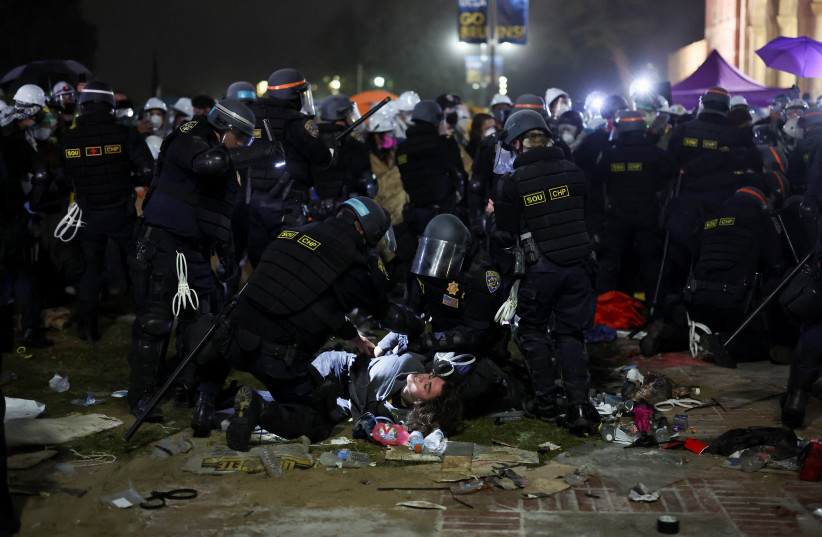In recent weeks, a series of violent protests on American college campuses has thrust the issue of free speech into the national spotlight, culminating in President Joe Biden’s unscheduled remarks condemning the violence and reaffirming the sanctity of the First Amendment. However, the incidents have also prompted a deeper reflection on whether our current understanding of freedom of speech is adequate or appropriate in today’s volatile environment.
The First Amendment of the US Constitution is unambiguous in its decree: “Congress shall make no law respecting an establishment of religion, or prohibiting the free exercise thereof, or abridging the freedom of speech, or of the press; or the right of the people peaceably to assemble, and to petition the Government for a redress of grievances.” This has long been a bedrock of American democratic values, ensuring that voices can be heard irrespective of their popularity or political convenience.
Yet what we have witnessed across campuses – from UCLA to universities in Texas, Georgia, and New York – is a far cry from peaceful assembly or constructive discourse. With violent clashes between protesters and law enforcement and reports of students being forced to hide their religious identities out of fear, it is evident that a critical line has been crossed. This isn’t the freedom of speech that the framers of the Constitution envisioned. Instead, it is a perversion of those principles, where the right to express dissent is used as a shield for chaos and intimidation.
Biden’s response to these incidents was poignant and necessary. He rightly underscored that while dissent is essential to democracy, it must never lead to disorder or infringe on the rights of others to pursue their education and personal safety. His remarks distinguish between peaceful protest, the hallmark of a vibrant democracy, and violent protest, neither protected by law nor conducive to constructive dialogue.

However, Biden’s call for clarity and legality in protests raises an essential question: Is our current legal framework surrounding free speech sufficient to address the complexities of modern societal issues? The violence and antisemitism manifesting under the guise of protest suggest that our traditional interpretations of the First Amendment may be inadequate to safeguard against the exploitation of these freedoms.
The increasing misuse of free speech to justify hate speech and violence necessitates a critical examination of how these freedoms are protected and limited. While upholding the right to free expression is crucial, the government and educational institutions must also ensure that such freedoms do not become a tool for fostering an environment of fear and suppression.
More nuanced understanding of free speech needed
This is not an advocacy for censorship or an authoritarian clampdown on dissent. Instead, it calls for a more nuanced understanding of free speech that recognizes the responsibilities accompanying the right to express oneself. The principle of not causing harm to others, physically or psychologically, should be integral to exercising this right.
We must foster an environment where constructive dialogue is encouraged, and diverse perspectives can be shared without fear of retribution or violence. Educational institutions, in particular, have a pivotal role in cultivating these norms by setting clear policies that distinguish between acceptable forms of protest and actions that undermine the safety and rights of others.
In his remarks, Biden emphasized that America is neither a lawless country nor one where authoritarian measures suppress public expression. This balance is delicate but essential. As the nation continues to navigate these tumultuous times, it becomes increasingly clear that our commitment to free speech must be coupled with an equally strong commitment to civil discourse and the rule of law.
While the First Amendment remains a cornerstone of American democracy, the recent events on college campuses remind us that our interpretation and application of these freedoms must evolve. Ensuring that freedom of speech does not transmute into freedom to oppress is paramount. It is time for a recalibrated approach that upholds the spirit of the First Amendment while protecting all citizens from violence and discrimination in the name of free expression.
